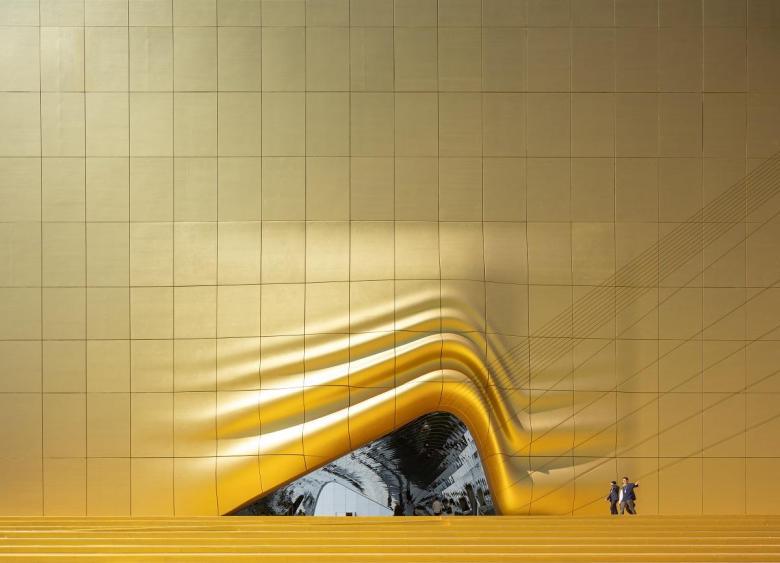Photo: Ossip van Duivenbode
Recently MVRDV completed The Imprint, a night club and indoor theme park near Seoul’s Incheon Airport where two windowless buildings are covered in "shadows" of the surrounding buildings. The Imprint prompted us to consider how the Dutch architecture firm uses images in their projects.
In MVRDV's description of The Imprint, the architects point out how they strove to create "expressive" facades:
The design achieves this by projecting the facades of the surrounding buildings in the complex, which are "draped" over the simple building forms and plazas like a shadow, and "imprinted" as a relief pattern onto the facades. ... Winy Maas says: "Reflection and theatricality are therefore combined. With our design, after the nightly escapades, a zen-like silence follows during the day, providing an almost literally reflective situation for the after parties. Giorgio de Chirico would have liked to paint it..."
So MVRDV has appropriated the elements of architectural history to create something new, something akin to art but not as expressive or deep. It's architecture meant to provoke and stick in the memory of visitors. And it's something the firm clearly excels at, as The Imprint and a few other recent examples below illustrate.


The surrounding buildings, albeit unexceptional, are "imprinted" onto 3,869 GFRC facades that are "lifted" to provide access to the interiors and give the impression of fabric or even rubber. (Photo: Ossip van Duivenbode)
Inside The Imprint, images are shifted to lighting and reflections, creating immersive, kaleidoscopic environments for fun. (Photo: Ossip van Duivenbode)
The interior of The Imprint recalls MVRDV's Market Hall (2014) in Rotterdam, a large barrel-vaulted shed covered with "Cornucopia," a mural by artists Arno Coenen and Iris Roskam that depicts huge fruits, vegetables, and creatures over, suitably, the enclosed food market. (Photo: Maciek Lulko/Flickr)
Half a world away, in Tianjin, China, MVRDV wrapped another large indoor room in images: books. There are real books on the shelves of the atrium of Tianjin Binhai Library (2017), but reports indicate they were temporary and planned on being removed not long after the opening -- and some accidents from people tripping on the ledges while taking selfies. (Photo: Ossip van Duivenbode)
Back home in the Netherlands, MVRDV has used glass to make historical allusions in two ways. At Crystal Houses (2016) in Amsterdam, a replica facade made of traditional terracotta bricks dissolves into solid glass bricks at street level. (Photo: Daria Scagliola & Stijn Brakkee)
And in Schijndel, MVRDV created Glass Farm (2013), a hip-roofed building wrapped entirely in glass printed with photographs (by artist Frank van der Salm) of historic farm buildings. (Photo: Daria Scagliola & Stijn Brakkee)






